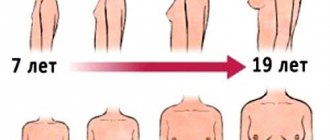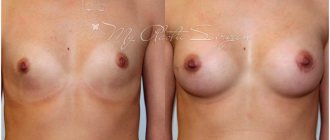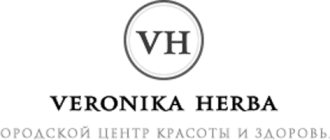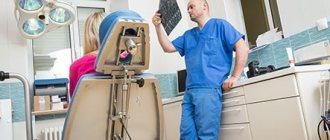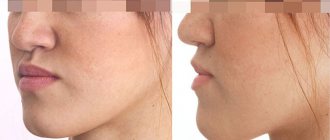Certified plastic surgeon. Professional training and advanced training under the guidance of Doctor of Medical Sciences. Professor Blokhin S.N. and Doctor of Medicine Vulfa I.A.
Andrey Evgenievich began his surgical practice in 2011 and gained extensive experience in breast plastic surgery, mastered the latest endoscopic techniques and cellular technologies (lipofilling).
Used by Kopasov A.E. modern surgical techniques - endoscopic breast augmentation, endoscopic lifting - are distinguished by their low trauma and micro-invasiveness, which allows to shorten the rehabilitation period and minimize the visibility of traces of surgery (micro-punctures, micro-incisions).
Education:
First Moscow State Medical University named after. Sechenov, specialty “General Medicine”.
Clinical internship, specialty “General Surgery”.
Clinical residency at Moscow State Medical University named after. Evdokimov under the guidance of Doctor of Medical Sciences. Professor Drobysheva A.Yu., specialty “Maxillofacial surgery”.
Clinical residency in the specialty of Surgical Implantology under the direction of Ermolin D.V.
Advanced training at the Federal Medical and Biological Agency of Russia in the specialty “Plastic Surgery”.
Professional activity:
Upon completion of training - work and scientific activity under the guidance of outstanding Russian plastic surgeons - MD. Professor Blokhin S.N. and Doctor of Medicine Vulfa I.A.
Internships in European clinics: Munich (Germany), Limassol (Cyprus), Barcelona (Spain).
Internship and advanced training at the Liakira Ribeiro Clinic (Rio de Janeiro, Brazil).
Internship and advanced training at the South Korean Center for Plastic Surgery - Seoul.
Since 2011 – assisting and collaborating with the chief plastic surgeons of the Frau Klinik – Prof. Blokhin and Dr. Wolf.
Since 2013 – independent surgical practice as a leading specialist in aesthetic surgery of the face and body at the Frau Klinik plastic surgery center (Moscow).
Since 2016 – leading plastic surgeon of the “Mad Drying” project.
Since 2022 – expert of the “Reboot” project on the TNT channel.
Winner of the “Best Breast Augmentation Surgeon 2018” rating on the beauty portal fine-beauty.ru.
Andrey Evgenievich performs a wide range of plastic surgeries using the most modern and effective techniques:
- Breast augmentation
- Mastopexy full anchor mastopexy
- Mastopexy with augmentation breast lift with simultaneous installation of implants
- Breast reduction breast reduction
- Abdominoplasty, tightening and modeling the contours of the abdomen
- Classic blepharoplasty or transconjunctival eyelid surgery
- Facelift
- Liposuction
- Lipofilling endosurgical liposculpture
- Gluteoplasty buttock surgery
- Brachioplasty - arm skin tightening
- Intimate plastic aesthetic correction of labia minora and labia majora
- Vaginal plastic surgery
- Aesthetic correction of scars and deep scars
Andrey Kopasov: “In principle, women cannot be compared - each is good in its own way”
An ordinary man is unlikely to understand all the nuances of a person’s appearance. Breaking down an image into details is a woman’s prerogative. It is more important for a man to grasp the essence. But plastic surgeon Andrei Kopasov, an expert on the television projects “Reboot” on TNT and “Mad Drying,” sees everything.
He came to our meeting at the Lumiere Brothers Center, where the works of the legendary American photographer Douglas Kirkland were exhibited these days, wearing a leather jacket, torn black jeans and a torn T-shirt.
Are all your clothes like this? Into the "hole"?
My reaction makes him laugh.
A.K.:
I've been into rock since school. All my idols had long hair and torn clothes. The passion for this style, as well as for alternative music, remains, as you can see, to this day. Even during operations I turn on Radio Maximum.
Creative? Well, at least it's interesting. What other plastic surgeon do you hear that about? Yes, nothing! While we are looking at photographic portraits of Hollywood beauties who shone on screens in the last century, I am trying to detect professional interest on Andrei’s face: who, if not he, is able to appreciate true, not “made” beauty with a trained eye? Here is the sophisticated vamp Marlene Dietrich... The outwardly restrained Audrey Hepburn with her amazing hypnotic eyes... The White Swan of Brigitte Bardot... In the 60s of the last century, when plastic surgery was not yet particularly developed, such an appearance could be considered a real gift of fate.
How do you perceive people in the subway, airports, on the street? Do you see their flaws?
A.K.:
I am convinced that beauty is such a... subjective concept. When you are at peace with yourself, when you are in a good mood, everything around you, including people, seems beautiful to you. Haven't you noticed? And vice versa. Therefore, sometimes it’s worth thinking about who is more close to you – beautiful people or not so beautiful ones.
But you can simply pay attention to the harmony of someone’s facial features, to the image...
A.K.:
You still need to communicate to give an assessment. Haven't you ever encountered a situation where a person seems attractive in appearance, but when talking to him this impression disappears? But this perception on the street and in the subway that you are talking about is somehow superficial. However, this is already philosophy... If we talk about physical flaws, then yes, I see them. Another thing is that they may not bother the person himself. I am often asked: what are the contraindications to surgery besides medical ones? There is only one answer: a person’s lack of desire to do something with himself. Some people see flaws in themselves, while others are completely satisfied with their own appearance.
Do you want to say that the problem with which they come to you is largely not about eliminating these very shortcomings - real or fictitious, but is of a psychological nature, that is, in the head?
A.K.:
Psychology is the most important factor. Getting plastic surgery is not a problem. But how necessary is it? How much will it change the patient’s worldview? Sometimes people tend to shift the responsibility to the surgeon altogether. But it's not right! The doctor is doing his job. And whether or not to change something within oneself is up to everyone to decide for themselves. In this regard, I remember the story of one of the heroines of the TV project “Reloaded”. The girl I operated on was not afraid to publicly declare that she had HIV. But despite this, she tries to live a full life. She has a husband, and now, if I’m not mistaken, a child has been born. The fortitude of this heroine, in my opinion, can serve as an example for those people who, having the same diagnosis, harbor a grudge against the whole world.
Let's say that content may be more important than form in certain senses. But then how can you explain your choice at one time of a profession and such a specific direction as aesthetic medicine?
A.K.:
I prefer to think that the job found me. I always wanted to be a surgeon. And I never planned to connect my life with plastic surgery, much less with private organizations.
I chose medicine consciously. By the time I had a year left before graduating from school, my father, who, by the way, also had a medical degree, sent me from Tomsk to Moscow. I passed the eleventh grade program as an external student in six months. At the same time, he entered courses at Sechenov Moscow Medical University. Then - study. Internship in general surgery. Residency – maxillofacial. But with employment, everything turned out to be not so rosy.
I spent six months without work, until one day a fellow student called me and said that a private clinic was looking for surgeons. I already had a certificate in plastic surgery, but, of course, no one gave me anything to do. They were looking at me. I delved into the intricacies of the specialty. I looked at the work of the professors. In this, I think, I was lucky - a certain school is important for a young surgeon. Those who don’t have it have to be guided by their own considerations and experiment. And this is difficult.
Do you remember your first operation? Was it scary?
A.K.:
Rather exciting. You can't start anything with fear. You can be afraid either before or after, but during the operation I turn off my emotions. I don’t know how to explain it... You enter some kind of state - like during meditation. When time flows differently and the sensations are different.
What is the most difficult case in your practice?
A.K.:
Each operation is complex in its own way. Especially when it comes to correcting natural asymmetries. Sometimes this can be so pronounced that you get the feeling that in front of you are the connected halves of two completely different people. Adjusting your face or body to minimize the noticeable difference is very difficult.
Does it happen that it is almost impossible to achieve results?
A.K.:
Then you need to tell the person about this so that he does not have illusions. There is anatomy - in each specific situation it is different. And we cannot change it globally. It can be difficult to explain this to people who come for a consultation and show photographs of stars asking them to have the same face made. Or the body.
If you apply the same approaches to everyone, then, probably, yes, society will become faceless. But in reality this does not happen. You cannot make several people the same - each of them, as I already said, has its own anatomy, and if you fit into it, you will get a result different from the others. Another thing is that some people become dependent and begin to endlessly correct something in themselves. There are patients who undergo surgery three or four times and still cannot stop.
So what should I do?
A.K.:
Only adequate doctors can help you cope with this, who will tell you in time: you don’t need this!
Can you refuse the operation yourself?
A.K.:
Yes. For example, when young girls come to me, who are already doing well. Then I send them to think. How do they react? Someone agrees and then thanks. And someone comes back with this idea again. In general, I noticed that Russian women have higher demands on themselves and often have unjustified complexes. Although our country has the most beautiful girls.
Do men contact you? Or is it mainly the fairer sex who resort to plastic surgery?
A.K.:
There are male patients. But for me this is a difficult contingent. Men are capricious and not as patient as women who are ready to wait and believe that everything will be fine.
Many people note your ability to empathize. Is it from nature or are future surgeons taught psychology?
A.K.:
Rather, there is some element of magic here: if you are open to the energy of another person, then you can feel his emotional state well. I work with sharp instruments and must understand how a person reacts to my manipulation. Another question is that the patient himself may be closed. Some people don’t even hide the fact that they don’t trust the doctor, and then it’s difficult to establish contact.
Do you mean the heroes of television projects?
A.K.:
Not only, although they too. The peculiarity of television projects is precisely that a person does not choose a surgeon, he is forced to work with you, because you are a doctor in this project. As a rule, all these heroes are people with difficult destinies, psychological problems and life tragedies. Before getting on the project, many of them did not even dream of plastic surgery, which, as it seems to them, could radically change their lives.
So what changes?
A.K.:
I don't know how much. But I hope so. For me personally, it’s a great incentive to realize that I can do something for people from other cities, where many live, without even allowing the thought that they can improve something in their appearance. After all, plastic surgery is not always accessible to ordinary people. I want you to understand one very subtle nuance: we work with obviously healthy people. That is, we do not save someone’s life, we do not cure diseases. In plastic, on the contrary, there is a chance of getting a problem out of the blue... But people go for it. And they even pay money for it. Why? I will try to draw an analogy with cars: for example, there is a Mercedes, and there is a simpler car. In both cases, it is a means of transportation, but someone can afford to choose a Mercedes and will not complain about its price, while others will be content with the budget option. For me, plastic is still a Mercedes. It is expensive. It is beautiful. And this is status.
What is more important for the result - new technologies, equipment? Or is the doctor’s talent still primary?
A.K.:
The doctor plays a major role in the success or failure of the operation. Clinics interested in attracting clients are now talking a lot about the fact that each has its own innovative developments. But no miracle equipment will save you if the doctor does not have experience and sufficient practice. By and large, all operations can still be performed using a scalpel and clamp.
And how many years has this practice been developed?
A.K.:
It’s difficult to name a specific number... If you operate every day, years don’t matter.
Does your busy work schedule tire you? How do you recover?
A.K.:
I'm doing what I love. And I’m recovering thanks to my patients. When they are satisfied with the result and are full of emotions – that’s cool! Words cannot describe it! Again, hobbies help you switch...
I know you went on internships to Brazil, Europe and Korea. Can you tell me?
A.K.:
In Europe, there is a different approach to plastic surgery - there are many different protocols and legislative restrictions. Surgeons in EU countries cannot afford to make radical changes to a patient's appearance. In Russia we have more freedom in this regard. At the same time, the achievements of Brazilian surgeons seemed very interesting to me. Actually, domestic technologies originated from there.
Why is plastic surgery so wildly popular in Korea?
A.K.:
Koreans, given their huge population and demand, can afford to experiment. In this country today there is a boom in European appearance. Another question: what are they doing? They completely change the natural anatomy by working with the skeleton. But, in my opinion, this is already too much. We have already encountered situations when dissatisfied patients who had surgery in Asia came to us. Although, of course, there are very good results.

